vegetable soils Steve Solomon style or not?
oliveoyl3
13 years ago
Featured Answer
Sort by:Oldest
Comments (23)
tcstoehr
13 years agolast modified: 9 years agoRelated Discussions
Raise the flooded garden or move to poor soil?
Comments (33)Storm passed us completely by, though there were some beautiful thunderheads to the east. Not even a drop. Yay! I'm on the other side of the same coin, NJ. I can't conceive of it *not* raining in the summer. I frequently read in gardening books and even on GW here about not getting the leaves of certain plants wet. I've scratched my head for years. Doesn't rain get them wet all the time? We just got back from a road trip to Victoria, BC a few days ago. It doesn't really rain in the summer there either. It was extremely strange to see brown grass (where it wasn't irrigated) and occasional falling leaves and I was told this was normal in the summer. That just doesn't happen here except in drought years. We saw farms all over BC baling beautiful hay. They could cut and bale at the optimum nutrition level because they totally controlled the irrigation. Time to cut? Just stop watering. Take as much time as necessary to dry in the swath; heck, take a couple extra days to flip the swath and dry it through. It's amazing. We just can't do that here most years. Usually, when it looks like there's going to be a rash of a few days with no rain, farmers are dropping everything - even 9 to 5 jobs in town - to 'make hay while the sun shines'. Even then, it's unusual to get hay off with no rain at all on it. Most of the prairies here support "dry-land" farms with no irrigation setup at all. In an average year here, I only usually need to water the garden at the beginning, when seeds are close to the surface and yet to germinate. After they've established, I rarely need to pull out the sprinkler. There's at least an inch of rain per week or so and when there's not, the roots dig deep enough that they're good for a few more days until it rains again. This is only my second year doing dry bush beans, but I'm finding it difficult to mature them on the plant because of the short season and because the rain still comes in the fall, though less. Same for the pole beans, though, they're up in the air and do dry off a little faster. No rain in the winter - just snow, cold and more cold. We can go into the -30s Celcius for a couple of weeks at a time and -40 and below is not unheard of. I don't get to do cover crops. Typically, last frost is within the first week of June (or late May in a good year) and first frost is usually early to mid September (but can come as early as August in a bad year). We can extend harvest into early October by covering on nights where there's frost forecast. Crops mature, but don't really grow much by then. I've tried mulches a few times, but have discarded the idea. I know it's a great thing for many gardeners, but I find it cools the soil too much and there's not really a need to conserve moisture. Should we go back to drought years, I'd see about trying it again. Right now, though, I need heat heat heat to reach my soil. :)...See MoreSoil depth for vegetable garden
Comments (13)I'm also a devotee of the concepts behind the double-digging method. The important aspects, IMHO, are tilling as deep as you can when you originally make new beds. Then you establish regular beds and paths, and don't walk on the beds if you possibly can. Amend heavily in the fall, and then as Michael said, leave soil improvement to the experts. You can work the amendments into the soil with a rake or a garden fork a couple inches if you want to, but you don't have to. Lots of folks till every year, and that works fine. But I'm worried my "micro herd" of worms, soil bacteria and fungi, etc. will be too disrupted. Besides, I don't know anyone with a tiller, so all my bed prep is done by hand. (Thankfully, I have the help of an agreeable hubby and sometimes of a strong teenaged daughter.) This year, I was able to plant some things in my oldest beds with my hands only if I wanted to. Not tomatoes that I plant deep, but peppers, lettuce, etc. As of this year, the tilth in those beds is amazing. I've been working those beds for about 5-6 years. Good luck with your new garden! I'm curious if it's windy on the top of the hill?...See MoreSteve Solomon's COF
Comments (28)OK,dchall. First of all, I was introduced to Steve Solomon's COF thru Mother Earth News, hardly a regional website. Secondly, if you aren't familiar with the COF recipe, I would expect you let someone more familiar with it respond. And third, my location has little to do with the question. I am using raised beds with purchased soil and amendments. No telling where they came from, but the pH is high. I'm trying to figure out how this issue went wrong. No matter where you read about him, Steve Solomon is not a household name. Nor is he a popular forum name. Had you searched the forums, you would have realized that. Then the COF thing is not only a new acronym, it is a foreign concept. So this got off to a bad start. But so do lots of questions. When you did not help us to help you, things deteriorated, at least for me. You are new so you probably have not read many of the problems and resolutions here. It is almost always important where the original poster lives because that is where your soil and environment are. If you lived in Florida and someone gave you an Alaska answer, that might not be very helpful. Please, no hard feelings. We will cooperate with you if you cooperate with us. To summarize the good points of the solution, you should probably not slavishly follow someone elses recipe. You should not use materials that worsen your soil situation. You should probably look for cottonseed meal to improve your soil. One thing that has not been mentioned is growing plants adapted to your region and soil. If you don't want to grow blueberries, then your soil might be fine as it is....See More'Organic Gardener's Composting' by Steve Solomon
Comments (5)Steve Soloman is a bit polarizing in his dismissive attitude towards those educated and doing research in horticulture (even though he has a college degree himself...just not in anything science related). That said, if you can get past his dismissive attitude towards government, research, and society in general (he's a bit of a hermit self-sustaining "survivor" type) he's got some good info in his writings...a lot, ironically, provided because people he sometimes condemns actually did the research he feels the need to share. Long story short...good info wrapped in a dismissive mistrust of those in the horticulture research industry even though he uses the fruits of their search for knowledge as a basis for his a lot of his advice. Go figure......See Moretcstoehr
13 years agolast modified: 9 years agoreg_pnw7
13 years agolast modified: 9 years agotcstoehr
13 years agolast modified: 9 years agoEmbothrium
13 years agolast modified: 9 years agooliveoyl3
13 years agolast modified: 9 years agotcstoehr
13 years agolast modified: 9 years agoplantslayer
13 years agolast modified: 9 years agoEmbothrium
13 years agolast modified: 9 years agogardengal48 (PNW Z8/9)
13 years agolast modified: 9 years agotcstoehr
13 years agolast modified: 9 years agoplantslayer
13 years agolast modified: 9 years agoanuparaj
13 years agolast modified: 9 years agogardengal48 (PNW Z8/9)
13 years agolast modified: 9 years agotcstoehr
13 years agolast modified: 9 years agoGeorge Three LLC
13 years agolast modified: 9 years agotcstoehr
13 years agolast modified: 9 years agogardengal48 (PNW Z8/9)
13 years agolast modified: 9 years agotcstoehr
13 years agolast modified: 9 years agopattyperfect
9 years agolast modified: 9 years agoEmbothrium
9 years agolast modified: 9 years agotcstoehr
9 years agolast modified: 9 years ago
Related Stories

FARM YOUR YARDHow to Grow Vegetables in Containers
Get glorious vegetables and fruits on your patio with a pro’s guidance — including his personal recipe for potting mix
Full Story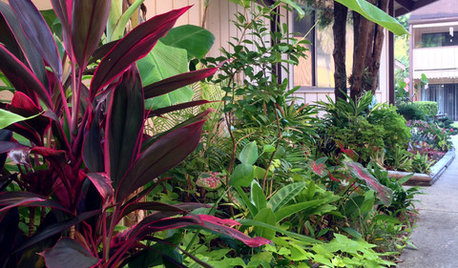
GARDENING GUIDESA Mom, a Garden and a Gift for the Neighbors
Gardening can be therapeutic in unexpected ways. See how one gardener found peace and purpose in a patch of Florida soil
Full Story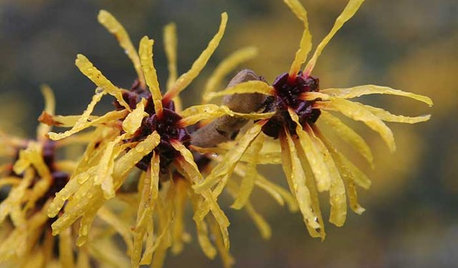
NORTHWEST GARDENINGPacific Northwest Gardener's February Checklist
Let witch hazel cast its spell, shut off your mason bees' snooze button and hit up the nursery for seeds and roses
Full Story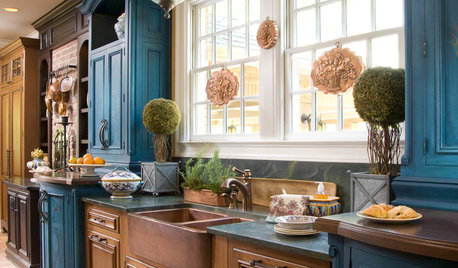
KITCHEN DESIGNKitchen Sinks: Antibacterial Copper Gives Kitchens a Gleam
If you want a classic sink material that rejects bacteria, babies your dishes and develops a patina, copper is for you
Full Story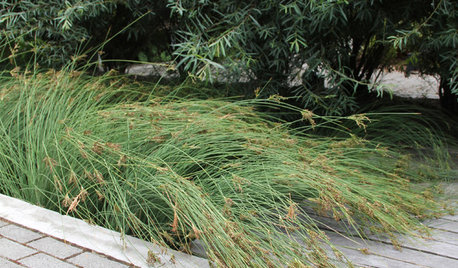
GARDENING GUIDESProtect a Precious Resource With a Rain Garden
Promote pure water and a beautiful landscape with a garden design that makes the most of the rain
Full Story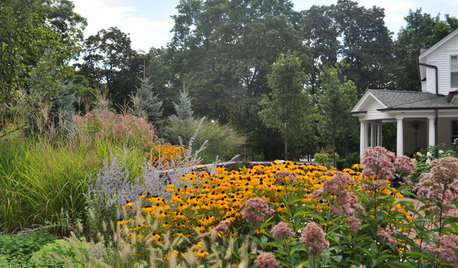
GARDENING GUIDESPacific Northwest Gardener: What to Do in September
Put in cool-weather veggies, fertilize your lawn and tidy the garden this month before chilly weather arrives
Full Story



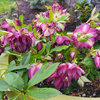
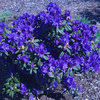
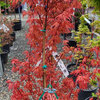
gardengal48 (PNW Z8/9)